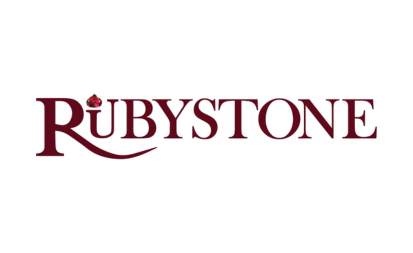Emerging trends in the hotel industry:-
Firms must stay up with the latest hospitality trends to avoid being left behind in the hospitality industry. Furthermore, keeping up with the market is a terrific method to ensure your company provides the customer

Firms must stay up with the latest hospitality trends to avoid being left behind in the hospitality industry. Furthermore, keeping up with the market is a terrific method to ensure your company provides the customer experience consumers want and expect. Customers’ requirements and priorities, however, have shifted as a result of COVID. This post will teach you about COVID and other general trends in 2023. Firms must stay up with the latest hospitality trends to avoid being left behind in the hospitality industry.
Furthermore, keeping up with the market is a terrific method to ensure your company provides the customer experience consumers want and expect. Customers’ requirements and priorities, however, have shifted as a result of COVID. This post will teach you about COVID and other general trends in 2023.
Why Is It Important to Stay Current on Hospitality Trends?
The most successful hospitality businesses are continuously evolving, but in order to do so, you must stay current on the latest hospitality trends. This includes marketing initiatives and hospitality operations that embrace cutting-edge technology and respond to global events. Keeping up with the newest marketing trends will give you the best opportunity of reaching your target audience and delivering what you want to convey. Meanwhile, embracing new technology can help a firm become more productive, while also improving the entire client experience.
Failure to keep up with the current hospitality trends, on the other hand, can have major negative implications, such as giving competing enterprises a clear competitive advantage over you. Worse, it may result in your company failing to provide the level of service that clients have grown to expect.
Factors Influencing Future Hospitality Developments
A ‘trend’ is a change in behavior or a more generalized environment change. Keeping this in mind, hospitality trends may include changes in consumer behavior, new ways of offering hospitality services, or a general shift towards adopting new hospitality technology. Trends are often influenced by a variety of causes. For example, the rise of technology such as artificial intelligence has resulted in a direction in which machine learning and AI technology are being employed increasingly frequently for customer service purposes. Meanwhile, virtual reality technology has revolutionized how many hospitality companies market their products.
COVID is hastening five hospitality trends.
The pandemic has hastened the following 5 hospitality trends. Although COVID has expedited these tendencies, there is a significant possibility that they will continue.
1. Safety and hygiene
Several hospitality trends can be broadly classified as safety and hygiene-related. These have become increasingly crucial in the aftermath of COVID’s appearance, as the globe adjusts to the virus and attempts to restrict its spread. Hotels, restaurants, bars, and cafes must prioritize these concepts. Measures include providing hand gel, cleaning locations where consumers will be, creating policies requiring the use of masks or other protective equipment, and ensuring social distance rules are followed. To make people feel comfortable, any particular restrictions must be made plain ahead of time and implemented.
2. Contactless Transactions
Many of the most significant hospitality trends are concerned with minimizing friction, and contactless payments are one of the most prominent examples. When accepting contactless payments, customers save time searching through cash or inputting their PIN. The introduction of services such as Apple Pay and Google Pay has also eliminated the need to carry a wallet.
The coronavirus epidemic has increased demand for contactless payments, in addition to minimizing friction and improving the consumer experience. Many consumers and employees are uncomfortable handling currency, therefore offering contactless payments may be viewed as a need rather than a luxury by many.
3. Voice Search and Control
Customers searching for and reserving hotels and restaurants are increasingly turning to voice search. As a result, you must respond to this shift in behavior and make a concerted effort to acquire these clients. This includes, among other things, clearly arranging your website content so that it appears correctly in voice search results.
Aside from that, voice control may control gadgets within hotel rooms, improving the visitor experience. Smart speakers, for example, can answer inquiries and respond to voice commands to turn on lights and devices in the room. This can also help to limit the amount of surfaces that guests touch.
4. Improve Home F&B Delivery
Many restaurants and food establishments have responded to COVID by boosting food and beverage deliveries, allowing consumers to have a restaurant-like experience at home. This frequently entails receiving phone and internet orders, delivering swiftly, and providing contactless deliveries.
Finding imaginative new ways to amaze customers is an important component of hospitality management in the COVID era. In terms of food and beverage delivery, establishments are looking into ways to provide drinks to clients’ homes. Meanwhile, restaurants are increasingly providing extras such as candles, free food, and QR codes that link to Spotify playlists.
5. Robots at Hotels and Restaurants
Automation is high on the list of hospitality trends to be aware of, and robotics is an example of this being taken to its logical conclusion. Robots can be used to greet clients and offer customer information at hotels, restaurants, and other similar businesses, and they can also play an important role in security operations.
Robots have been deployed in hotels to provide room service as well as cleaning and other housekeeping tasks. Meanwhile, restaurants may be able to deploy robots to perform portions of food service. This is especially important when dealing with restaurant customers who want to avoid as much intimate contact as possible.

“The hotel industry thrives on personalized experiences and sustainable practices. Emerging trends embrace technology-driven services, eco-friendly initiatives, and experiential accommodations. From contactless check-ins to AI-powered concierge services, hotels are redefining guest experiences. Green initiatives, such as energy-efficient systems and locally sourced amenities, shape a more sustainable future for the hospitality sector.”
Sandeep Singh, founder of Rubystone Hospitality
—–
 English
English French
French German
German Italian
Italian




